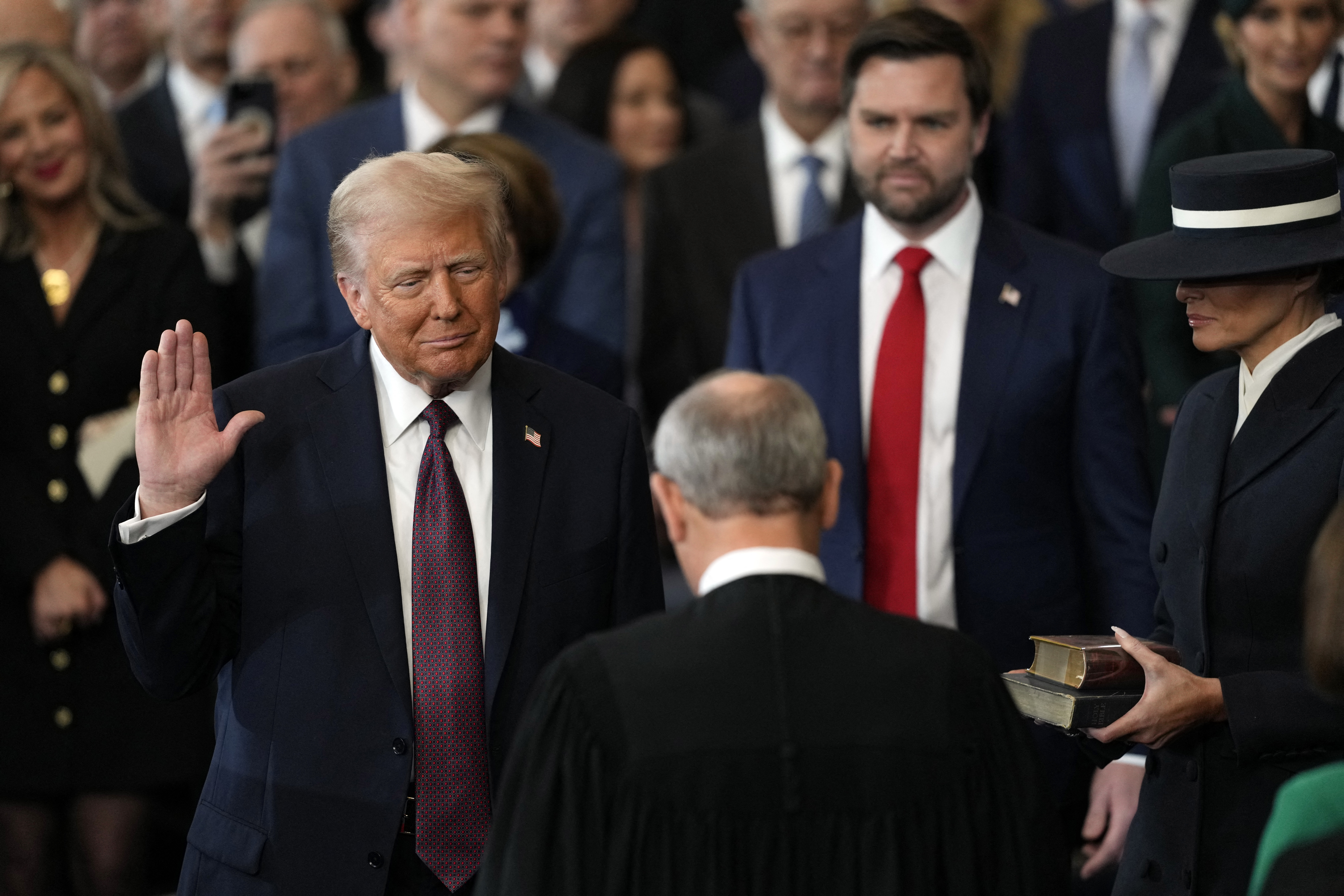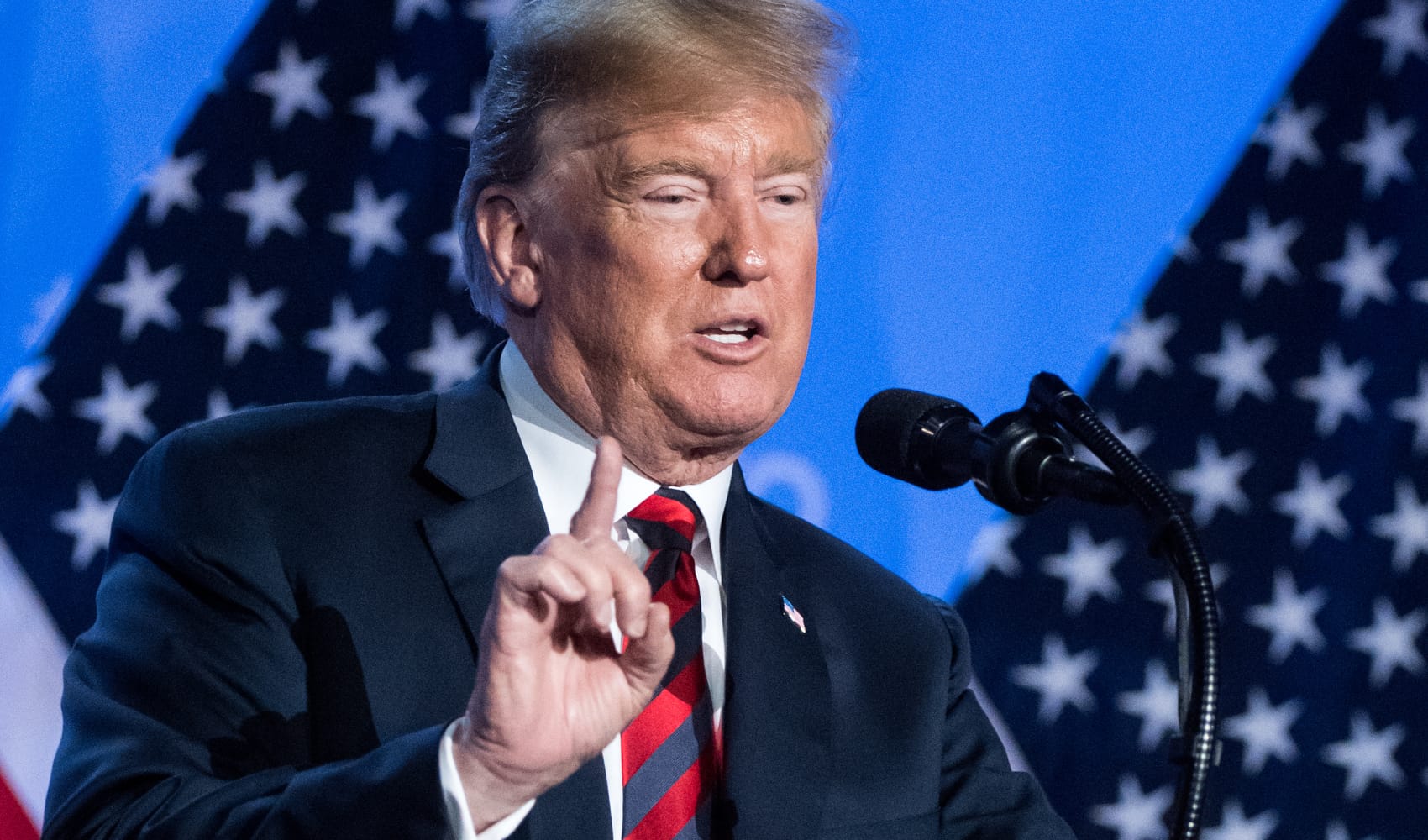Already behind the curve in organizing for the Republican convention, Donald Trump has missed crucial deadlines in a number of states to lock up delegates who would stay loyal beyond the first ballot.
Trump's shortcomings in this behind-the-scenes campaign, which hasn't played much of a role in selecting the GOP nominee in decades, could doom his presidential candidacy if he is unable to win the nomination in the initial voting at this summer's national convention in Cleveland.
After that first ballot, most delegates are no longer bound to support the winner of their state's party primary or caucuses — they're free agents who can support the candidate of their choosing.
Most of the actual delegates are elected at state and congressional district conventions run by party insiders, members of the Republican establishment that Trump has run against from the outset of his campaign.
And while Trump's team has had little contact with these loyal party activists, his chief rival for the Republican nomination, Texas Sen. Ted Cruz, has been actively courting them for months.
Trump has spent the past three days hammering at his party's delegate selection process as "unfair."
At a rally in Rome, New York, Tuesday evening, Trump angrily denounced Saturday's final allocation of all of Colorado's delegates to Cruz, blasting the party's system as "rigged" and "corrupt."
U.S. & World
Trump's team is only now starting to engage in the delegate selection process, the choosing of the actual people who will attend and vote at the convention. Republicans have already selected delegates in at least nine states. And in others, such as Virginia and Arizona, the deadline to apply to be a delegate has passed.
Indiana's primary, for example, won't take place until next month. But the deadline to become a national convention delegate was in mid-March.
"Are we concerned? Yes, definitely," said Tony Samuel, vice chairman of Trump's Indiana campaign.
The Cruz team feels the opposite.
"Even if (Trump) jumped into high gear, he can't do it," said Shak Hill, a Cruz campaign leader in Virginia. "That's where he's been shut out of the game."
Trump's delegates must vote for him on the first ballot at the convention. But if no one gets a majority, most of the delegates can then bolt if they choose.
Trump is the only candidate with a realistic path to the 1,237 delegates needed to clinch the nomination before the convention. But the path is narrow, and Cruz is working to block him.
Cruz has built an organization of volunteers who are working in state after state to get his supporters selected as delegates, even those who must vote for Trump at first.
Trump is just ramping up his operation, but in some states he's too late.
In Virginia — a state where Trump won the primary — he has missed the deadlines to assemble lists of potential delegates. Cruz, however, has delegate candidates in 10 of Virginia's 11 congressional districts.
The application deadline was last month.
Indiana's primary is May 3, but 27 of the state's 57 delegates — the actual people — have already been selected at congressional district caucuses. The deadline to register as a candidate for delegate was March 15.
In all, at least nine states have picked some or all of their delegates: Colorado, Iowa, Indiana, Kentucky, Louisiana, Michigan, North Dakota, Tennessee and Wisconsin.
Trump has won a total of 100 delegates in primaries and caucuses in these states. In most, however, the candidates had no formal role in selecting the people who will fill those slots.
To help manage the process, Trump's campaign hired a convention manager, Paul Manafort, last week. Manafort helped lead the fight against Ronald Reagan's challenge of then-President Gerald Ford at the 1976 Republican convention in Kansas City.
Manafort has accused Cruz's campaign of strong-arming would-be delegates and said in an interview with Fox News Channel's Sean Hannity airing Tuesday night that he shared concerns with his boss.
"The point that Donald Trump was making is that the process in Colorado was being abused and it's not that the rules themselves were unknown, it's the way the rules were applied," Manafort said, according to a transcript provided by the network. "We're seeing the same mistakes in Colorado, Missouri and Louisiana. And so the mistakes are not really mistakes — it's a pattern."
However, he said Trump was successful in selecting delegates in Michigan, and predicted the same in Nevada.
"In fact, we wiped him out," Manafort said in an NBC interview Sunday. "And we're going to see Ted Cruz get skunked in Nevada."
Former South Carolina Republican Chairman Katon Dawson, who has been publicly neutral in the race, said he's seen no difference in Trump's delegate strategy since Manafort's hire.
Said Dawson, a veteran national GOP strategist, "He's not a household name or miracle worker by any stretch."
Trump won all 50 of South Carolina's delegates. But in order to be a delegate at the national convention, you had to be a delegate at last year's state convention.
"The people that are going to fill those slots were already selected anyway," said Republican political consultant Tony Denny, who has been a delegate to three previous GOP national conventions.
Cruz has already done a lot of groundwork to get supporters selected as delegates in South Carolina.
"The delegate selection process is in their DNA," Denny said of Cruz's ground operation.



